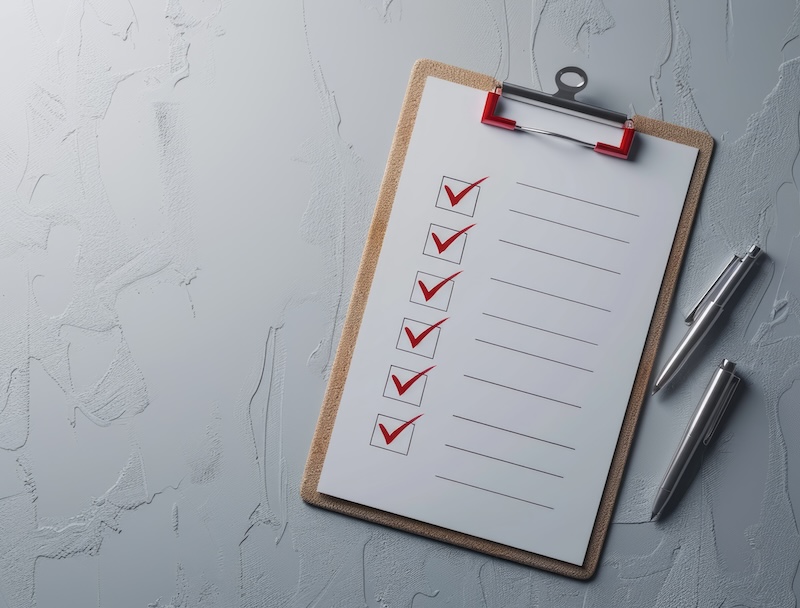Here’s how you prepare for signing up to Organise Your Exchange. This page gives an overview of the grade-related, financial, school permission, and practical considerations you’ll need to check.
To explain OYE at your school, you can use use these one-page presentations (EN / NL) or share this page dedicated to teachers.
Before signing up for Organise Your Exchange, it’s important to go through each of the following points to make sure everything is ready. Some of these factors might be deal-breakers for organising an exchange. For example, if the cost of travel and insurance is too high, an exchange through OYE won’t be possible right now, as there are no scholarships available to cover the costs.
Other factors may limit your options but won’t make an exchange impossible. For instance, if your school or country doesn’t allow absences during term time, you can still arrange an exchange during school holidays.
You can find a checklist here in a Google Doc. We suggest making a copy or downloading it to keep track of your research and decisions as you go through each point.

Will your school approve your absence during the exchange? Check if your grades are good enough for your school to support you missing classes while you’re away.
Do you feel confident about missing some classes during the exchange? Make sure your grades are strong enough for you to handle having less time for schoolwork, both during your outbound and inbound exchanges.
If your grades aren’t currently high enough to get school approval or for you to feel comfortable, is there a plan you can put in place to improve them before the exchange?

For each country you’re interested in, check the typical travel costs, including flights, trains, or buses, at different times of the year. You can use sites like Google Flights, Skyscanner, or Rome2Rio to get an idea of the expenses
You will be responsible for organising and covering the costs of picking up and dropping off your exchange buddy from the airport or station when they arrive.
Plan your budget for activities and meals during the inbound exchange. The goal is for the exchange student to not have to pay for anything while staying with your family. However, you can discuss details with the exchange family during the planning phase.
Investigate if you will need additional health insurance for the outbound exchange. If you are from a European Union country, you can request a European Health Insurance Card (EHIC) to receive the same level of care as in your country at no additional cost.
Whether to take out travel insurance is a personal choice, though it is recommendable if potential unforeseen costs would put your family in financial difficulties. You can read more about what to consider here.

If you plan to go on exchange during the school term, you’ll likely need permission from your school board. Whether this is allowed depends on your country, school policies, and your academic standing. You can read more about the laws per country on the Country Profiles page.
If you want to host your exchange buddy during the school term, check with your school to ensure they are allowed to visit and possibly join your classes.

Organising an exchange requires a significant amount of time and effort throughout the year. Discuss as a family who will be responsible for each part of the process and whether everyone is comfortable with those roles. You can use this page on the ‘Steps in Organising an Exchange’ to help plan in a structured way.
Before signing up, review the school year to determine the best times for both an inbound and outbound exchange. You can copy this Google Sheets template and fill it out based on your specific situation.
Building trust between the exchange families is a crucial part of the preparation process, helping everyone feel comfortable with the exchange. It can be very helpful if a teacher or administrator who knows you and your family is willing to act as a point of contact for your exchange family.

Now that you’ve completed the feasibility checks, you’re ready to create your profile.
We recommend drafting your answers in a separate document first, as it will take a while to answer all questions. You can find a Google Doc with all the questions here, which you can copy or download to work in.
While writing your profile, you’ll want to keep the following three points in mind:

When looking for a match, some questions are more important than others.
Certain questions set hard conditions. This means OYE will never match you with a family that doesn’t meet your chosen criteria without first asking for your approval. Some examples are question 5.1 on exchange buddy gender or question 6.5 on food restrictions.
Other questions are considered soft conditions. While OYE aims to match you with profiles that closely fit yours, there may be cases where a match is made even without an exact overlap, depending on the available options. Examples include question 6.1 on student interests or the open questions 10.1 & 10.2 on ideas and wishes for the exchanges.
For a complete list of hard and soft conditions, check out our FAQ.
When filling out your profile and preferences, you might be tempted to specify the ideal exchange—like “a two-week stay with a Spanish family, in my own room, during school vacation.”
While this can increase certainty about potential matches, being too restrictive may reduce your chances of finding a match. For instance, if you’re also open to a one-week exchange during the school term in France, not including that option could mean missing out altogether.
On the flip side, make sure you are clear about important preferences. If you indicate you’re fine sharing a room with someone of the opposite gender but later realize you’re uncomfortable with it, this could lead to complications that could have been avoided with clearer initial preferences.
As you fill out your profile, consider both sides of each question to find a balance that works for you.
Before you can submit the form to sign up for Organise Your Exchange, you’ll have to accept our Terms and Conditions and Privacy Policy.
The Terms and Conditions explain your relationship with Organise Your Exchange and the service that the platform provides. The Privacy Policy explains which personal data we collect, why we collect it, and how it is stored.
If you have any questions about these terms, please feel free to reach out to us using the contact form.
Once you’ve prepared your profile, you can sign up to Organise Your Exchange by filling out the Google Form:

OR
Have Organise Your Exchange reach out to you

Organise Your Exchange is a platform that allows high school students and their families to organise their own cultural exchange
Info in:
Sign up to receive updates about the platform, countries, or offers
2026 Organise Your Exchange
We use cookies to provide you with the best experience. We only use Cloudflare cookies to protect our website, and Google Analytics (GA) cookies to anonymously track how users use the site. You can easily opt-out of GA with this official plugin.
By continuing to browse, you agree to our cookie use as described in the Privacy Policy